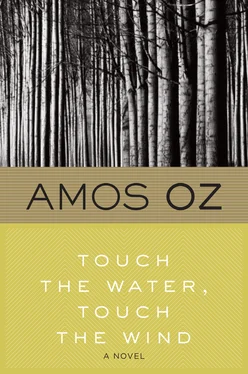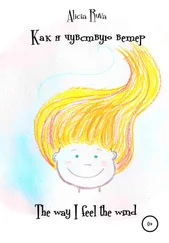In the afternoon Pomeranz was brought up out of the cellar and interrogated tediously and offhandedly: where, when, why, what he had seen, about the potato crop in the Poznan region and the fish in the Vistula. In the middle of the interrogation they lost interest in him; three corporals came into the room and some others arrived and they started to play cards and left Dziobak Przywolski alone till the telephone was mended or Reutenberg came and decided or something.
But he did not leave his captors alone.
Those Germans turned out to be coarse men.
In vain did he try to discern in them even a spark of dark demonic fire: hour after hour they played cards, swore, shot with their submachine guns at a bottle on the gutter of the roof, fried pork in pork fat all night long.
This prisoner, for his part, never stopped talking to all of them. He tried to entertain them and to win their sympathy; he tried to make them laugh, to play his mouth organ for them, even to start an argument. By means of conflicting ideas tending to circularity he attempted to establish some kind of fundamental agreement with his jailors. After all, both he and they were part of the same perpetual structure, and without either side the structure could never materialize.
They were delighted. The spate of high-flown, unintelligible words revived in some of them childhood memories which were vague but strangely sweet. First they gave him beer mixed with salt to drink. This amused them and gave rise to fresh witticisms. They had the idea of dusting him with sneezing powder so as to make him sneeze more and more until he could not stop. Then, slobbering and slurping as they gorged themselves on pork fried in pork fat, they threw crusts of bread at him and feigned innocence. There was great merriment.
There was a babyface among them, pure, pink, and pathetic, who coaxed and implored the guest to turn water into wine, wine into fire, fire into water. And another, a gloomy corporal, a diligent, dedicated schoolboy in a uniform too big for him, looking like Young Werther, stretched out on the filthy floor and pleaded with the sneezing stranger to stop leading them into temptation, for it was too great for them, they were but weak, base matter. There were also numerous drooling drunkards, running with brotherly tears, who tended Dziobak Przywolski continuously, giving him to drink, picking out his lice, and rolling him onto his back and over onto his stomach again. The air was thick with coarse tobacco, frying fat, and stale wine. Till early morning peals of laughter re-echoed, and tears too flowed freely.
The prisoner, however, did not relax his grip on ideas all night long. He addressed them all with devotion and didactic enthusiasm, in excellent, elevated German, speaking at length with both wit and warmth, sneezing frantically, making abundant use of paradox, introducing astounding hypothetical possibilities, arresting syntheses, mathematical speculations, dialectics and more savage sneezes, he conclusively proved that he was of a virgin truly born, they might test him with ax or gun, he was dead and risen again, and sent to bring salvation, vomit and beer were baptism and prayer, atishoo amen, and he wiped their spittle from his face as he groped with words for a synthesis and in desperation even performed a few small miracles, but all in vain.
In short, he with his Germanic thought, with signs and wonders, and they for their part with pork fat.
And yet beneath their uniforms these Germans were nothing but brutish peasants, lumps of clay of Silesia or Lower Saxony, endlessly guzzling beer and staring vacantly into space: cloudy glassy bear's eyes.
Even the lame major, a stuffed Viking with fake gold hair, was an elderly man convulsed with hiccups, who was carried away all that night with high-pitched weeping.
And the guard post itself, formerly a convent or a village seminary, was filthy enough to arouse disgust in a soul which appreciated Culture.
So it happened that Pomeranz suddenly grew tired of his captors.
With an inner shrug he completely abandoned the intellectual confrontation, the synthesis, and in his heart he took his final leave of the nauseating Germans.
Toward morning he began to belch and paw the ground. Far away in the Promised Land, All our hopes will he fulfilled. The mouth organ discharged a few sad notes and the man, dreamy and forlorn, rose into the air. Up through the chimney he floated and away into the forest: metaphysical wrong cannot be perceived, while perceptible wrong emits a powerful stench of pork fat.
Stefa took Professor Zaicek into her home.
Flaxen-haired Martha, his servant, had abandoned the scholar's house when the Germans had entered the town. And the Professor, who was adept at discovering hidden links between St. Augustine and Friedrich Nietzsche, had never managed to learn to tie his own tie.
He was a lonely, helpless old man. When he bent over the grate to light the fire he covered himself with coal dust, and when he put more coal on he singed the ends of his beard. The smoke blinded him and filled his eyes with tears which buried themselves in his bushy white beard. Despite everything his close friends told him, the Professor continued to maintain the belief that Martha had left him and his house for a man, and that she would be sure to return when her love cooled down. Was that not just what had happened with Martha's cat — she too had disappeared and come back when her time was past. Even his postal links with scattered friends all over Europe progressively deteriorated. Worst of all, the Goethe Society had ceased to function, and the Goetheans themselves seemed to have vanished into thin air.
Perhaps they had all fled to the cellars, to the forests, and only he was forgotten?
There, in their dark hideout, by candlelight, all the Goetheans would be meeting every night and holding whispered conferences. They would draw up a sensational document which would instantly bring the world back to its senses. Germany herself would open her eyes and be smitten with shame. And meanwhile Stefa came; the drunken gardener, Run-Jesus, piled several suitcases, bags, files of documents, photographs and woolen underwear on a small handcart, and that night the Professor was taken into Stefa's house. Times were not easy.
And so toward sunset, as evening came down, while Martha Pinch-me-not abandoned herself to the arms of clerks or mustached policemen, while the Goetheans in their candlelit cellar fitted word to word with supreme care, the Professor would stand alone at the window for half an hour or more, and contemplate the fading of day. He could see the damp gray wind howling across the town of M—, bursting out over wide wintry expanses, stirring the fir forests, screeching at cottage windows. Far away in the distance he could see huts and towers, and beyond them the lights of Warsaw gradually dying away, the swell of the turbid Baltic, night stooping over Berlin, steep ravines darkening in alpine valleys, he could sense the mighty rivers flowing through the dark, Volga, Rhine, darkness on the peaks of the Pyrenees and Apennines, darkness on the northern steppes and the mountains of the Balkans, and over all, bitter and piercing, the howling of steppe wolves at solitary towers. Then Stefa would gently touch his shoulder. Professor Zaicek would start, bow deeply to his watch, peering to make it out, and announce:
"It is dark outside."
Stefa would draw the heavy curtains, put on the lights, lead the scholar to an armchair, and offer them both a drink. The Karl Marx features, touched by wisdom and agony, would brighten slowly, painfully, as though by a powerful effort of the will, until they finally suggested the hint of a shy smile. Stefa would say:
"A pleasant evening."
Читать дальше

![Хироми Каваками - Strange Weather in Tokyo [= The Briefcase]](/books/29150/hiromi-kavakami-strange-weather-in-tokyo-the-br-thumb.webp)










